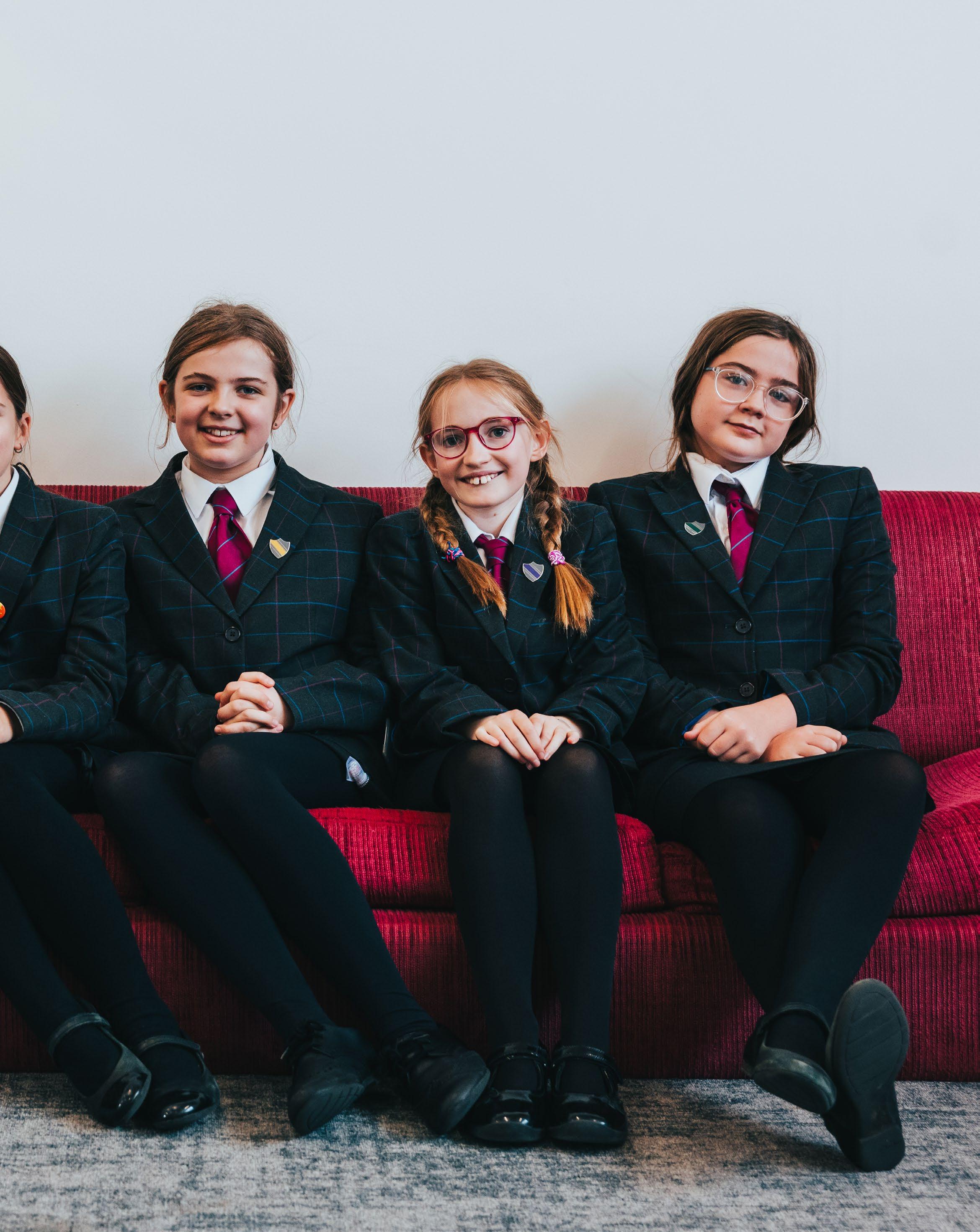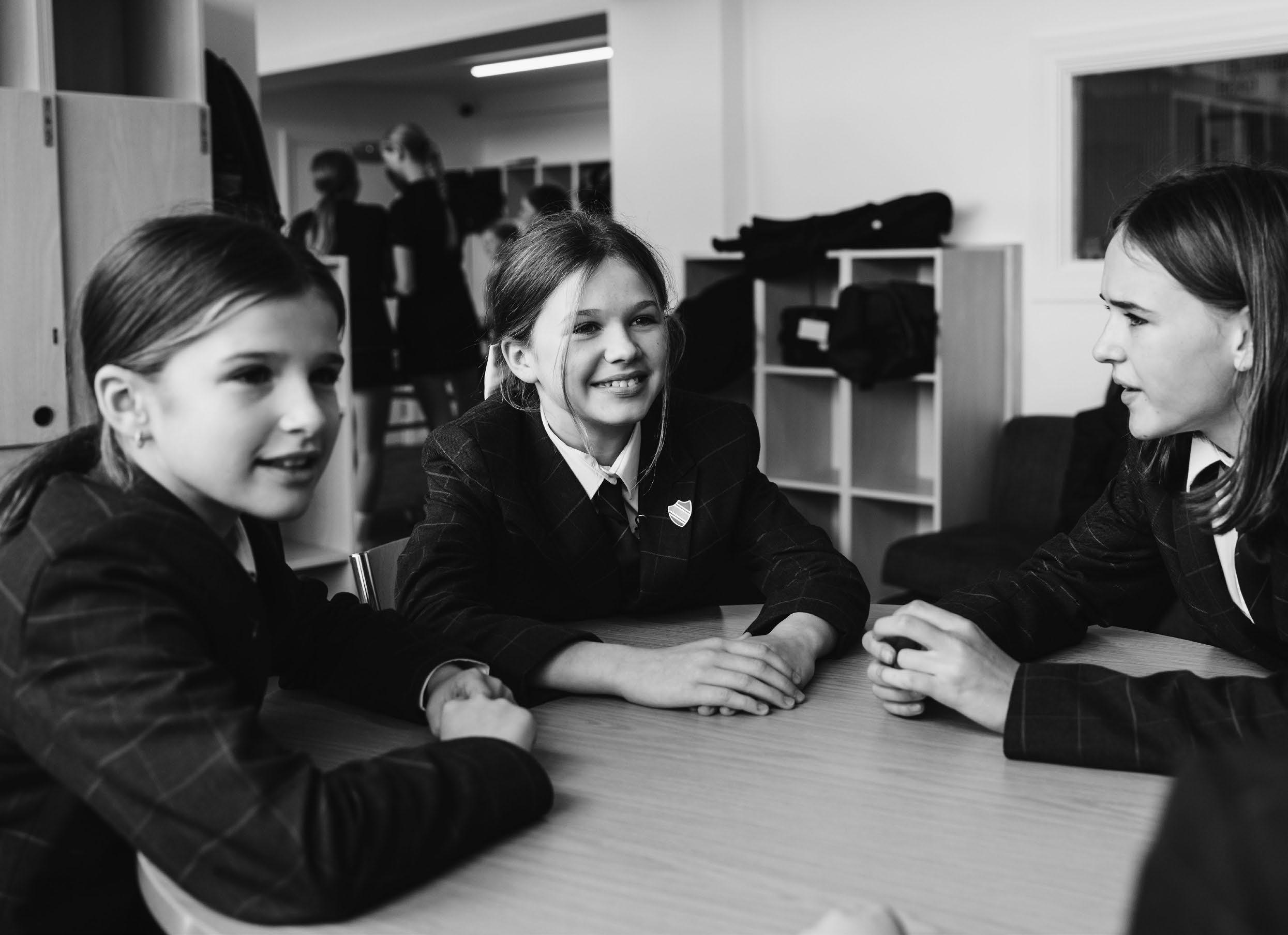
YEAR 7 & 8 (FOURTH FORM)






YEAR 7 & 8 (FOURTH FORM)




1. Big Side
2. 1st Square
3. First Pavilion
4. Gym & Swimming Pool
5. Art School
6. Year 7 & 8 (Fourth Form) Centre
7. Performing Arts Centre
8. Design & Technology
9. Music School
10. Buchan – Pre-Prep
11. Buchan – Prep
12. West Gate
13. Science Wing
14. Bragg Lecture Theatre (1st Floor)
15. Boys’ Boarding
16. Principal’s Office
17. Reception
18. Year 9, 10 & 11 (Fifth Form) Centre
19. Barrovian Hall (1st Floor)
20. Year 12 & 13 (Sixth Form) Centre
21. King’s Court Theatre (1st Floor) Dr Scholl Library (Ground Floor)
22. English Department
23. Girls’ Boarding
24. Chapel of St Thomas
25. Second Pavilion
26. Principal's House
27. All Weather Pitch
Tennis & Netball Courts
Chapel Side Pitch
HEAD of YEAR 7 & 8
Tel: +44 (0)1624 820400
Email: amy.beesley@kwc.im
DEPUTY HEAD of YEAR 7 & 8
Tel: +44 (0)1624 820400
Email: emma.craine@kwc.im
The Year Group Centre and the area outside is the social base for Year 7 & Year 8. The Head of Years’ office is located in the building. Each student will be assigned a locker, this is where they should keep books, sport bag etc. Please make sure they have a padlock. All students will be required to wear a door fob wristband or pass for accessing the school door system. They will also have a photo taken for a school ID card. This card is used for getting the bus and for taking books out of the school library. Each student is given an email address, which will be firstname.surname@edu. kwc.im. They are also given a Firefly Account. Firefly is our Education Platform. It is very important for students to check their email and Firefly everyday because this is how teachers communicate and set homework. They will be shown how to access Firefly and their email during their first ICT lesson.
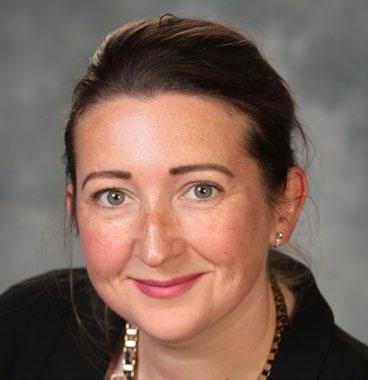
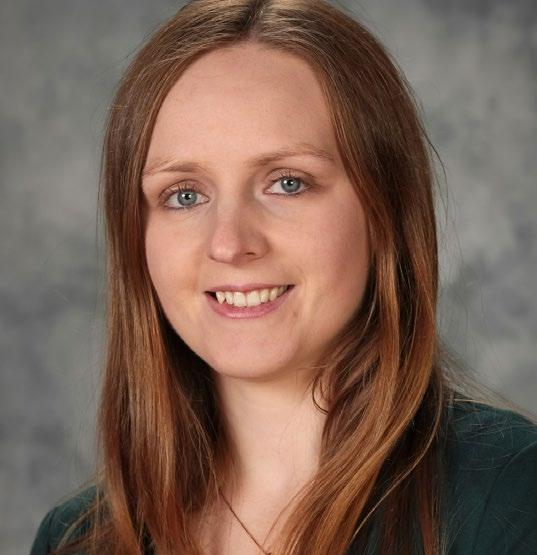
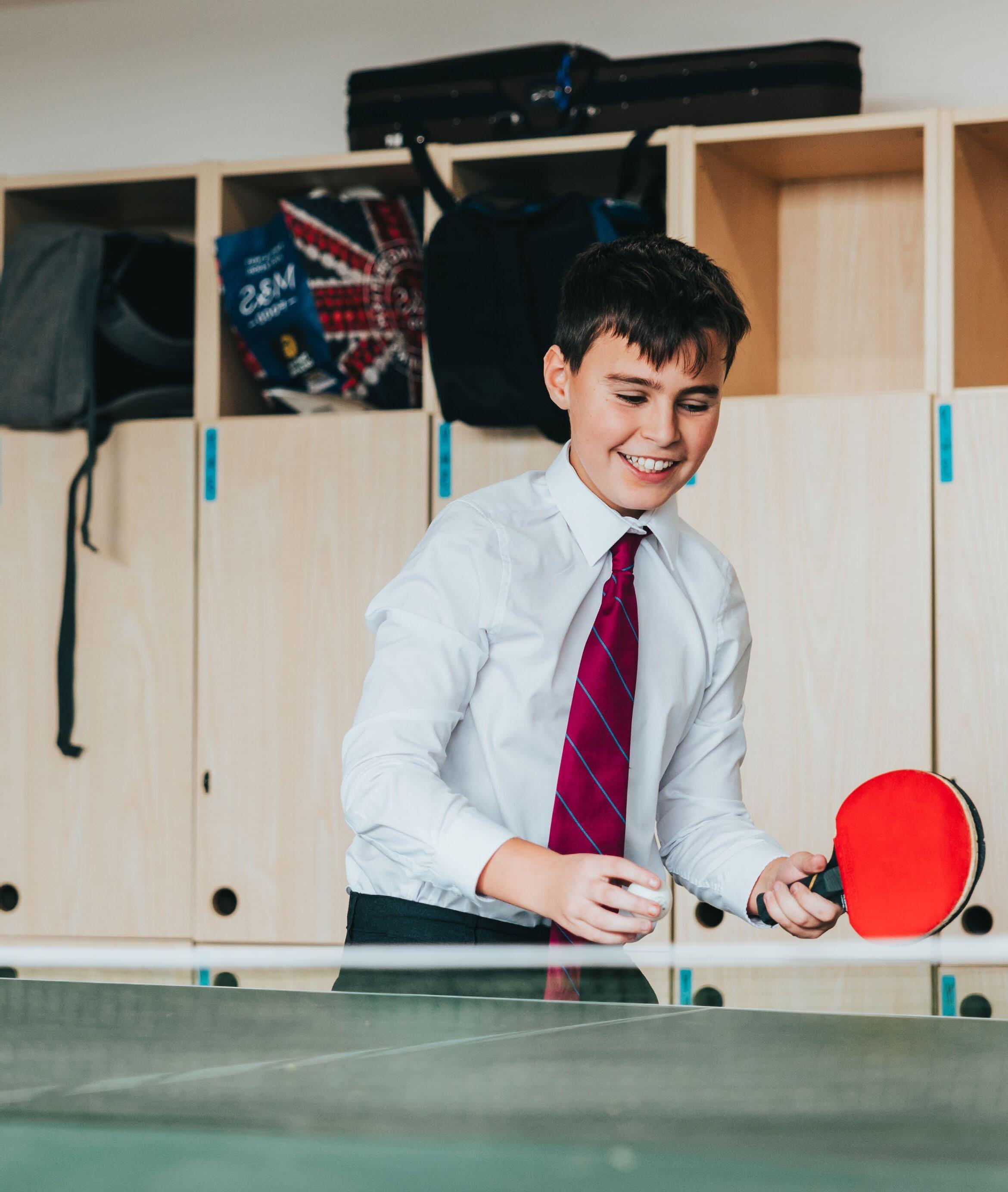
Fourth Form at King William’s College represents Year 7 and Year 8. Each tutor group has a Form Tutor who is always on hand to look after the students’ wellbeing. There are usually six tutor groups (depending on numbers), these are vertical groups which combine Year 7 and Year 8 students. The Form Tutors closely monitor the students in their care, reviewing academic progress and pastoral matters and reporting back to the Head of Year on a daily basis. Tutors take morning and afternoon registration and will see students each Wednesday and Friday in Form Time.
Students should always feel free to go and talk to their tutor at any time of the day to discuss any matter. Form Tutors sort out rewards, assessments and homework diaries and will discuss any relevant matters with the students and contact parents if necessary. Most groups are mixed ability, but streaming is introduced in the first term in English, Maths and languages. Year 7 study the core subjects of English, Maths and Science, along with French, Spanish/ Latin, History, Geography, Design & Technology, Computing, Art, Music and Religious Studies. There are timetabled lessons of Physical Education (PE), Games, Drama and Personal, Social, Health and Economic education (PSHE).
Students should arrive at school by 8:20. Registration takes place from 08:20 - 08:25 and then in every lesson.
Students attend Chapel on Tuesday and Thursday mornings from 08:30 - 08:45 and every other Friday from 15:25 - 16:20.
Year 12 &13 Assembly (Bragg) Year 12 &13
08:20-08:25 Registration
08:30-08:45 Community time
08:50-09:45 Period 1
09:50-10:45 Period 2 10:45 Break
BREAK
11:10 Period 3
12:10 Period 4 (end 13:00 for Year 7 & 8)
13:00 Lunch for Year 7 & 8
13:05 Lunch for Year 12 & 13
13:10 Lunch for Year 9, 10 & 11 (Year groups on rotation) 13:45 Lunchtime activities
LUNCH
14:15 Afternoon Registration
14:25 Period 5
15:25 Period 6 (House Time/Chapel on a two week rotation on Fridays)
Year 12 &13
16:30 - 17:30 After school activities (Some activities end at 18:00, e.g. CCF on a Wednesday
Afternoon Games arrangements P5/6 (to fit in with island fixtures and avoid taking from academic lesson time):
Monday Tuesday Wednesday Thursday Friday Year 8 Year 9 & 10 Year 7 Senior (Year 11, 12 & 13) Year 9 (PE, P5)
Please be aware that coaches leave promptly at the end of school day at 16:30 and it is the student’s responsibility to ensure that they are there on time.
There are lots of extracurricular activities to get involved in at lunchtime and after school, a full list of activities is displayed in the Year Group Centre during the first week of each term and will be available on Firefly and the website. Students are encouraged to get involved in as many as possible. There is also a supervised prep club in the library from 16:30 to 17:30 Monday to Thursday.
Students need to remember to collect books and homework from the Year Group Centre before going home. The building will be locked at 18:00 each night.
There are regular assessments throughout the year.
The assessment will take account of attitude to learning and achievement. Attitude to learning will be described as ‘exceptional’, ‘good’, ‘satisfactory’, or ‘room for improvement’.
Exceptional Plays an active role in lessons; keen to extend their learning.
Good Engages well in lessons; a positive influence on the class; work always completed on time and to the best of their ability.
Satisfactory Generally tries hard; contributes to class discussions; work usually completed on time; prepared for all lessons.
Room for Improvement Needs reminders to stay on task or contribute to discussions; work not always on time and frequently rushed; often forgets to bring books/equipment; rarely adequately equiped for lessons.
Achievement will be reported on a 0 - 9 scale in line with IGCSE grades. Levels 8 and 9 are outstandingly good (similar to an A*) and a 1, 2 or 3 suggests that targets need to be agreed with the subject teacher. A grade 4 is similar to a C grade.
Year 7 & 8 exams are held in the second half of the summer term. Results are reported using the 0 - 9 scale.
All students will receive two written subject reports, one tutor report and a parents’ evening each year. All assessments and reports are published on Firefly.
There are two Parents’ Evenings for each Year Group (a Pastoral evening and an Academic evening), at which parents have the opportunity to meet subject teachers, Tutors and Year Heads to discuss their child’s progress. At some evenings there are also presentations on topics such as the curriculum, higher education options and extracurricular activities.
Meetings are run on an appointment basis; we use a booking system called School Cloud to organise appointments. We run both face to face and online conferences depending on the circumstances of the event. Should you wish to prolong the discussion you have at a Parents’ Evening please arrange another time mutually convenient to you and the member of staff. We are always happy to discuss the progress of any pupil at any time with their parent.
Each receive rewards from subject teachers for good work and also from staff for other good deeds, for example being kind to a fellow student or helping out at break. The rewards are recorded and accumulated through the term. Awards are given to the best individuals at the end of each term.
Form Tutors keep a close eye on general attitude and behaviour throughout the term and poor performance in any subject will quickly be picked up by them or the Head of Year. Detentions and report cards may be issued.
Each student has a locker in the Year Group Centre to store books and other belongings. You will be required to provide one lock. Sturdy inexpensive padlocks are the preferred option. Please make sure that your child’s games bag is not too big, so that it can fit into the locker or bag rack.
Personal belongings can be brought to School, but this is at the students’ own risk. Make sure items brought to School are properly named. For practical reasons students are encouraged not to wear jewellery at School. Students will be asked to remove any jewellery prior to Games sessions, but it is easier for all concerned not to wear jewellery, especially if it is valuable. Earrings should be of a single stud variety and only one in each ear.
Year 7 & 8 students should not bring mobile phones into School. However, if there is a strong reason for them to do so they must adhere to the school policy, which is as follows: Mobile communications must be invisible during the working day (8:00 until 16:30) in all areas of the College. Unless express permission is granted, mobile phones must not be used to make calls, send SMS messages, surf the internet, take photos or to use any other application during the school day. A student may ask permission from the duty member of staff to make a call on their phone if it is appropriate. There is a telephone in Reception that students may use in an emergency. Also, students may request to use the telephones in the Year Group offices. Parents may leave messages for their children with our receptionist.
Firefly is used by all teachers for setting homework tasks. Students will be shown how to use Firefly in their initial ICT lessons. Students must check that system every day to be informed about their homework tasks. At the start of each term students will be given a prep diary. Students should keep this diary with them at all times; it fits easily in their blazer breast pocket. At the start of the autumn term we record their timetable and prep timetable in these diaries. If the prep that is set on Firefly is discussed during lessons students can record extra details in this diary. They can also use the prep diary to organise their Firefly tasks and log deadlines.
In Year 7 & 8 students get prep for two or three subjects a night. The suggestion is that students should spend around 20 minutes per subject each night, around one hour in total. If you find that your son/ daughter is taking a lot more time in any subject, talk to their Form Tutor.
In Year 7 & 8, students have the opportunity to play sport throughout the week. Physical Education lessons take place in the morning, whilst Games afternoons are on a Monday (Year 8) and Wednesday (Year 7). There are a variety of clubs and extracurricular sessions at break, lunch and after School. Fixtures run throughout the year and students will often get the chance to compete both on and off Island in a variety of competitions.
Private tuition in Music is offered during the week and students are taught individually. During the year there are a wide variety of opportunities for students to perform publicly both individually and alongside their peers. Students are also able to prepare for and take practical performance exams through a range of exam boards.
To arrange individual Music lessons, please complete the form on Firefly or contact music@kwc.im
All Year 7 & Year 8 students are actively encouraged to immerse themselves in the extracurricular offer, be that in choir or in instrumental ensembles such as orchestra. Many of our pupils participate in performance opportunities in the wider Island community including the Manx Folk Awards and The Guild.
Private tuition in Speech and Drama is offered during the week. Students are coached individually or in small groups for the London Academy of Music and Dramatic Art (LAMDA) examinations.
To arrange tuition in Speech and Drama for you child, please complete the form on Firefly.
Learning support is offered to those students (following careful assessment) whom are deemed to have a need. The type of support offered is designed to suit the student.
All students will be assigned a house. There are three houses:
• Walters
• Dickson
• Colbourne
There are lots of inter-house competitions, including Sport, House Music, House Shout and House Drama.
Pen, pencil, ruler, eraser, pencil sharpener, 30cm ruler, protractor, pair of compasses, scientific calculator, highlighter pen, coloured pencils, tin of watercolour pencils, sticky back plastic, a ring binder and water bottle.

Our Boarding House offers flexible full boarding facilities for Year 7 & Year 8 in designated boys’ and girls’ boarding accommodation. Boarders are taken care of by dedicated boarding house staff and have access to College facilities, outside of the College day.
Students may join boarding at any point during the school year to:
• Take advantage of the set prep sessions each evening;
• Work with their peers and subject teachers inhouse;
• Enjoy the vast array of activities on offer;
• Benefit from the fabulous breakfasts and great company;
• Build independence and new friendships across various year groups;
• In some cases, avoid long journeys to school.
Information on boarding can be found on our website or by contacting:
Susie Parry Head of Boarding School House girls’ Houseparent susie.parry@kwc.im +44 (0)7624 483249
Mark Moss Wilson House boys’ Houseparent mark.moss@kwc.im +44 (0)7624 493608
WHAT’S COVERED?
Autumn Term
Me, Myself and I - work on self-portraits, Fauvism, colour theory and drawing.
Spring Term
Jungles - Henri Russeau and landscape painting.
Summer Term
Aboriginal Art - an exploration into Aboriginal culture and art.
One lunchtime a week in the Kitto Studio with Mrs Beesley.
WHAT’S COVERED?
Each term we will cover one of the following six strands.
Year 7:
• Autumn: Processing - Computational logic, decision-making & automation.
• Spring: Storage – Manipulation & organisation of data.
• Summer: Communication - Sending information between computers and people.
Year 8:
• Autumn: Text & Numbers - Calculations & text formatting.
• Spring: Graphics - Still and moving images.
• Summer: Audio & Mechanical - Sound, music & moving parts.
Within each strand we will move up through these layers:
• Machines – CPUs, HDDs, motherboards, screens, micro:bits, cameras & more
• Programming -Scratch, MakeCode, Python, Lua, HTML, JavaScript & more
• Applications - Pixel Art, Paintshop Pro, TinkerCAD, SculptGL & more
• Society - Impacts of Technology, eSafety & more
The fundamentals of Design and Technology at King William’s College consist of; integration of designing (including communication, understanding contexts and users, iterative design strategies and avoiding fixation), making (including techniques, tools, processes, equipment and machinery, materials and components), evaluating (including ideas and products, past and present designers, new and emerging technologies) and technical knowledge (including structures, properties of materials, electronic and mechanical systems) to solve real world problems.
Our curriculum aligns learning with an iterative design process where subject content of design, make, evaluate, and technical knowledge is constantly changing and adapting to pupils needs. In order to allow pupils to develop a broad capability in Design and Technology these content areas are taught through units that focus on the interrelated areas of design and making, the group has 1 teacher throughout the year who will visit all areas of Design & Technology with them including but not limited to: Textiles Technology, Food and Nutrition, CAD and Visual Communication and Product Design.
All equipment, CAD applications, materials, and resources are provided however we do advise that all students have access to good quality drawing and coloured pencils, a fineline pen, and a willingness to get creative and productive!
Support is available at any time by asking for assistance from D&T teaching staff or technicians.
* Extracurricular
YEAR 7
Autumn Term
Introduction to Drama, Myths and Legends, House Drama Festival*
Spring Term
Story Telling, Improvisation, Public Speaking*
Summer Term
Script Work, Boal Games, The Guild*, Festival of Celebration*
YEAR 8
Autumn Term
Public Speaking, Much Ado About Nothing/ Macbeth, House Drama Festival*
Spring Term
Conflict & Stage Combat, Comedy and Theatre of the Absurd
Summer Term
Mono/Duologues scripted or devised, The Guild*
TUTORIALS
Whole School Production rehearsals Wednesday and Thursday lunchtime 13:40 - 14:05 and Mondays after school 16:30 - 18:00 in King’s Court Theatre or in West Side Studio. Students are encouraged to join in extracurricular activities.
National Theatre Discoverwww.youtube.com/user/ntdiscovertheatre
During Year 7 & Year 8, students begin their journey through the English Literature landscape, exploring a range of works, all with a view to developing a love of literature. Exploring both the canon and modern literature, students cover a breadth of eras and genres, ranging from Medieval Literature to Gothic Fiction. In doing so, we read a range of prose texts, poems and playscripts, in order to develop comprehension and writing skills. Alongside this, students are encouraged to hone their skills in creative writing, having the opportunity to enter writing competitions, compose short stories, and tackle a range of non-fiction texts. Throughout, there is a focus on spelling, punctuation and grammar and all students are encouraged to keep reading journals to track their reading outside of class.
Weekly lunchtime tutorials are available to provide additional support as required. The Learning Support Department offers handwriting, reading and writing support at lunch-times by prior arrangement to enhance the fundamental skills that underpin all subjects.
All students in the two sets will cover the same topics as per the Scheme of Work for the acquisition of basic vocabulary and grammar rules. The students will get a piece of prep per week and these are either vocabulary-based tasks, writing or reading comprehension. The two groups in Year 7 will have a test before half-term based on what they have learnt so far and they will be put in the appropriate sets after the October holidays. As all of them will cover the same aspects, students might be moved if necessary based on their classwork and end of year examination.
Every Tuesday lunchtime, there is a rota at the entrance of the Barrovian Hall.
College is subscribed to a variety of language websites and students are most welcome to go online at home and revise vocabulary or simply have fun playing some of the games in French. Login and password details will be provided in due course.
WHAT’S COVERED?
In Year 7 year we will study What is Geography?, Ordnance Survey Maps, Weather and Climate, Climate Change, and Kenya and Africa.
In Year 8 the students study Weathering, Rivers and Coasts, Economic Activity, Population and India and Asia.
Geography tutorial are available at request where work can be caught up on or help can be given as and when needed.
www.bbc.co.uk/bitesize/subjects/zrw76sg www.ordnancesurvey.co.uk/mapzone/games climatekids.nasa.gov/menu/play/
We begin our studies with Medieval History in Year 7 and finish with Victorian Britain by the end of Year 8. Through exciting topics such as the Battle of Hastings, the Black Death, Henry VIII and his wives, the English Civil War, the Slave Trade, and Victorian crime, we work on developing the historical skills of analysis, detecting bias, and causation through the key events of these exciting few hundred years where Britain changed beyond recognition and became a dominant world power.
Help is always available when requested. History Club takes place every Wednesday lunchtime.
Over the course of the year, students will learn to recognise key features of the Latin language, such as verbs, nouns and adjectives. Each week, a piece of prep will be set; this will either be a translation exercise or a learning homework (vocabulary or grammar). Students will also study Classical Civilisation topics, to give them an understanding of what life was like for the Romans.
Support is available at lunchtimes.
www.clc.cambridgescp.com/books/book-i files.cambridgescp.com/CLC/VocabTesters/ vocuk1.html
Lessons are designed to engage all levels of learners through problem solving, group and independent tasks. Topics covered include analysing and displaying data, number skills, expressions, functions and formulae, decimals and measures, fractions, probability, ratio and proportion, lines and angles, sequences, graphs and transformations, percentages, geometry and shape.
A variety of lunch times are offered throughout the week.
The school subscribes to www.drfrost.org and all students have their own personal login, where they can access the relevant curriculum for them.
www.parallel.org.uk www.mathsisfun.com www.coolmathsgames.com
Lessons are designed to foster and encourage creativity through listening, live performance and use of music technology. We cover a wide range of genres and topics including Elements of Music, Musical Form, Song Writing, World Music and Sequencing. This enables pupils to develop their creative skills and self-expression, growing in confidence in both composing and performing music at every stage.
All pupils are welcome to be involved in ensembles and choirs which rehearse weekly. Currently these include:
• Orchestra
• Folk Group
• Theory Club
• Music Theatre Group
• Chapel Choir
• Accompaniment Session
Participation in music is proven to positively benefit academic achievement as well as being immensely beneficial to wellbeing. We work with our musicians of all abilities to encourage them in their music making and enjoy the array of benefits to be gained from making music together as a community.
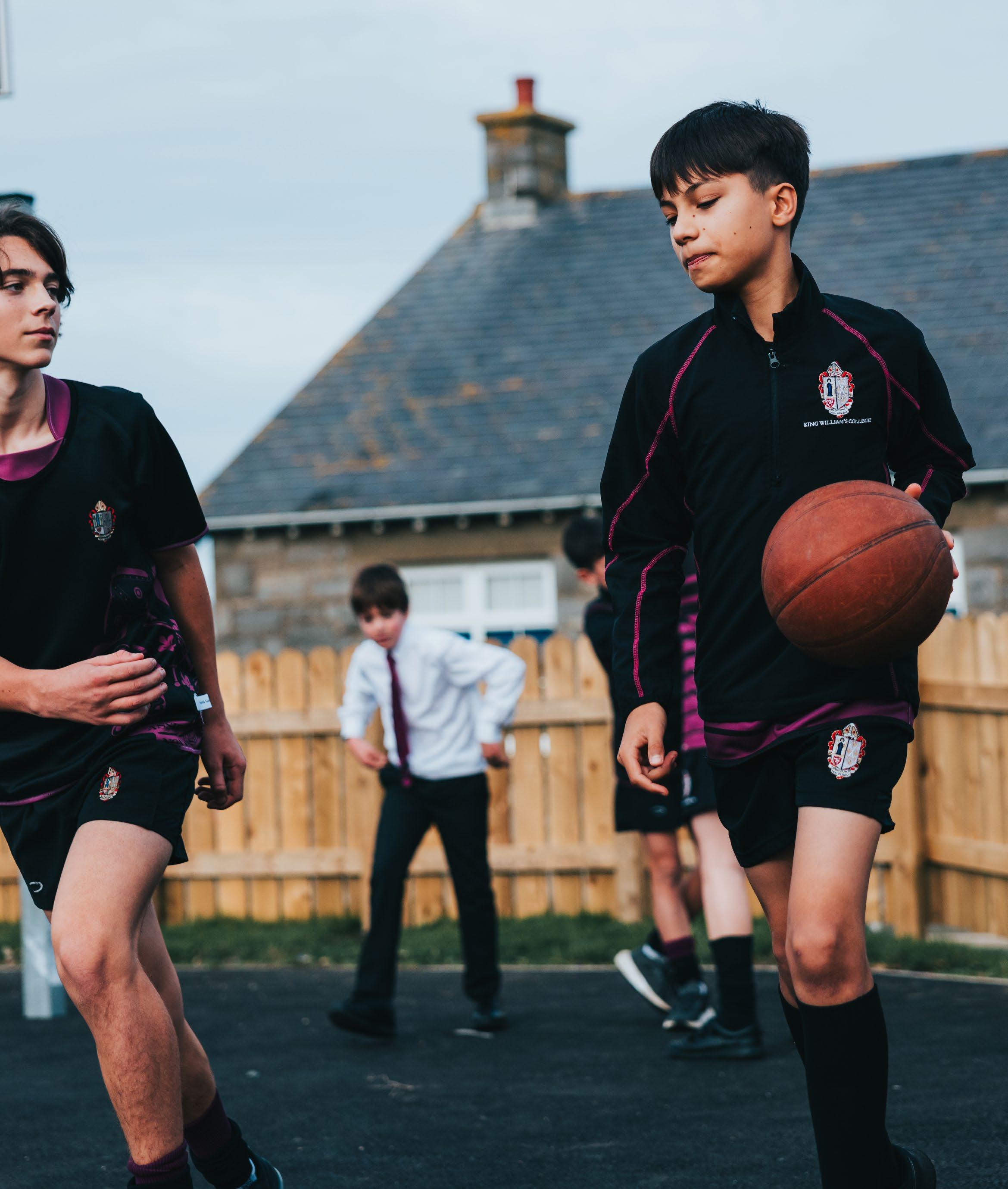
Lessons are aimed at developing physically literate individuals who have the knowledge, skills and confidence to enjoy a lifetime of healthy physical activity. Activities include swimming, dance, athletics, badminton, rounders, health related fitness, tennis, table tennis and basketball to name a few.
Competitive team sports are at the heart of our sports programme at KWC.
Boys: rugby/football/cricket/basketball
Girls: hockey/football/netball/rounders
• Make the most of the provision on offer to them, in order to better themselves as individuals and team players. Where possible, students are encouraged to join clubs outside of school.
• Always give their best in everything that they do, regardless of whether they find something easy or difficult to master.
• Develop good attitudes of pride, sportsmanship, and ethical behaviour. Supporting those who they are playing with and against.
• Take a pride in appearance by attending each session with the correct kit and equipment
WHAT’S COVERED?
In Year 7 students begin their journey through the religious landscape with an exploration of two of the three Abrahamic faiths, Judaism and Christianity. Throughout the year they will investigate the foundations of these religions while learning about the major beliefs, worship, rituals and festivals associated with each one. They will also delve into the Isle of Man’s Celtic history, learning about the change from belief in Celtic Gods to Christianity. Alongside this they will also be introduced to some philosophical studies covering questions such as ‘What is religion?’, ‘Do miracles exist?’ and ‘How did the world begin?’ In Year 8 students will continue their religious journey as they learn about the eastern religions of Hinduism and Buddhism. They will explore further philosophical themes and be introduced to ethics as well. Throughout these students will be able to deepen their understanding of the world and begin to learn to question and debate topics from multiple perspectives.
TUTORIALS
Tutorials are available as required and by prior arrangement.
WHAT’S COVERED?
A range of topics, including: Practical Skills, Cells, Plant and Animal Reproduction, Digestion, Breathing, Particles, Separating mixtures, Acids and Alkalis, Periodic Table, Earth, Forces, Energy, Electricity and Space. The syllabus details are available on Firefly.
Tutorials are available in Biology, Chemistry and Physics and are advertised on the tutorials’ timetable.
BBC Bitesize KS3 Science bbc.co.uk/education/subjects/zng4d2p
Education Quizzes educationquizzes.com/ks3/science Textbook
Science Progress 1 (Year 7) and Science Progress 2 (Yeart 8), Hodder.
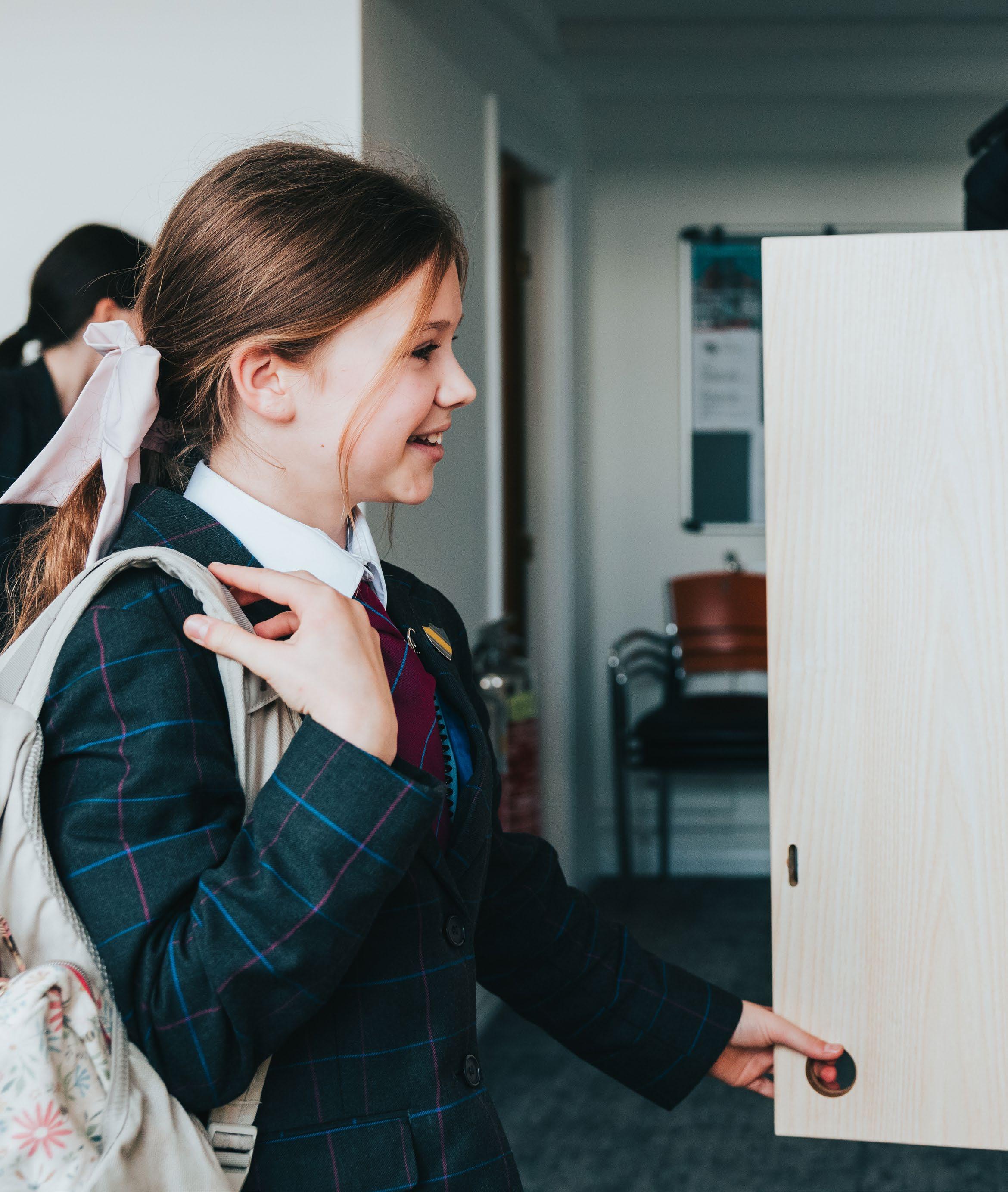
All students in the different sets will cover the same topics as per the scheme of work based mostly on the acquisition of basic vocabulary and grammar rules. Students will be set by the end of the first term with a class test on what they have learnt so far and then they will be put in the appropriate sets. As all of them will cover the same aspects, students might be moved if necessary based on their classwork and end of year examination results. The students will get a piece of prep per week and these are either vocabulary based tasks, writing or reading comprehension exercises.
Spanish tutorials are on Monday at 1.45pm. If students need any help they can go to see their teacher each week. All the Spanish teachers are available for support at that time.
College is subscribed to a variety of language websites and students are most welcome to go online at home and revise vocabulary or simply have fun playing some of the games in Spanish. Login and password details will be provided in due course.
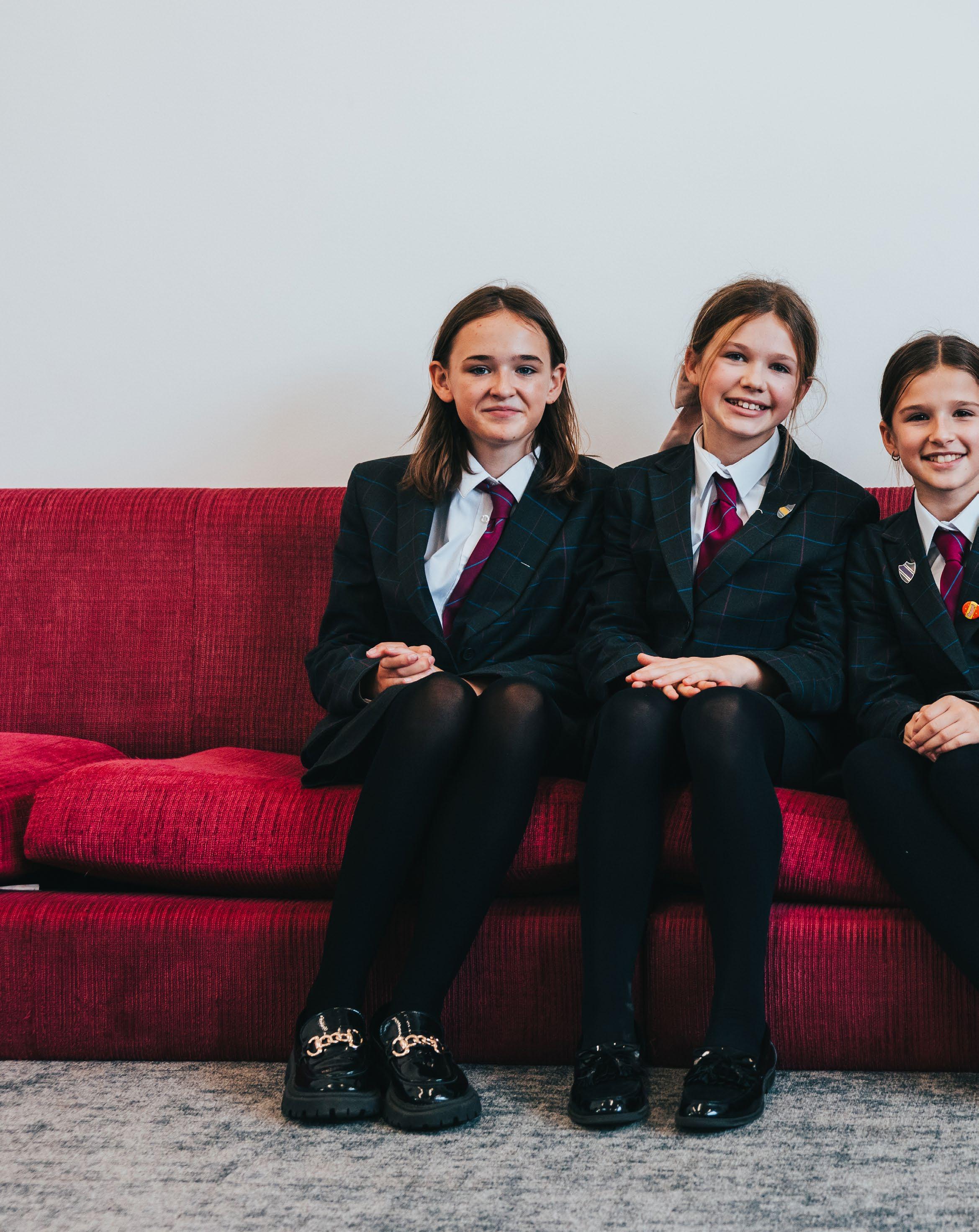
Recognise and praise others when you notice them being kind.
Give support to others and let them know they are not alone.
Do not expect perfection. Challenge yourself while looking after your wellbeing.
Connect with the people around you. Be active. Go for a walk or run, cycle, play a game, garden or dance. Take notice. Be observant, look for something beautiful or remark on something unusual. Keep learning. Give what you can: time, patience, and understanding. Be kind.
Everyone has their own goals. What can you do to challenge yourself?
Consider having four realistic goals at a time: academic, mental, social and physical.
What do you do when you face a challenge? What do you do when things do not go to plan?
If at first you do not succeed, try, try again.
